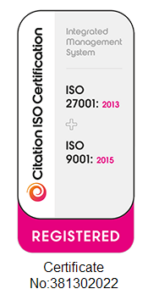Are we facing an events emergency, and how do we deal with it?
According to data from events agency Freeman, event attendance is sitting this year at around 65% compared with 2019 numbers. The fact is that, just as the world is starting to pay attention to the climate emergency, on the meetings side, we all need to pay attention to what might be dubbed “the events emergency”, because although things seem the same, sometimes it feels like the sky keeps changing colour.
The post-Covid world has changed delegate behaviour forever but adjusting to those changes can mean reviewing old ways of doings things and embracing new solutions for event planners. Understandably, many hope that in-person meetings formats will become the norm again, although that seems increasingly unlikely.
With more people barriers to travel and people choosing not to travel as frequently, the big question is what the event formats of the future will look like? That’s not just with regards to physical vs hybrid vs digital, but also with regard to logistics, such as the space that will be needed for future events, the technology involved, the escalating cost of energy to heat and light venues,how much they will charge and how do you plan for future events on what seems to be ever shifting sands? We need to think how, as an industry, we can do better? How can we proactively understand and respond to the needs of delegates and deliver meaningful and engaging events? What do we need to do to create more sustainable events – both from an environmental and delegate expectation perspective?
There are plenty of ideas out there. For example, micebook, which is a digital hub for events professionals, shares many ideas on new models for how to sustainably grow the industry. We are all looking forward to micebook. Ventures 22 in Liverpool, where the great and the good of the wider events industry will come together between 31st October and 2nd November, to discuss ways in which we can make events better: for our clients, for our industry and for the planet. It will focus on how we can create more dynamic experiences while understanding that the old model of global travel to events is shifting. Open Audience is proud to be supporting this event and will continue to work collaboratively with clients to design sustainable, engaging events that turn passive delegates into active participants.
Medical associations can face real challenges in embracing alternative approaches to event delivery or communications sharing, but delegates’ expectations and life circumstances have altered, and it’s important to be cognisant of that when planning future meetings. Our own experience tells us that many organisations are having to adapt and change rapidly to meet an unclear future need – and our responsive, flexible team has been ready to partner with them to facilitate and incorporate innovations and developments that can make the event experience a more valuable and enjoyable one for all.
Abroader blended model
So, what does that look like? Having an unconstrained approach from the outset, one that puts all the options on the table and considers a broader blended model, is often easier than trying to re-purpose traditional solutions. In a new scenario, it mightbe that you plan for a smaller live audience with a broader percentage of the audience accessing an elevated (or edited) virtual solution. That means enriching the experience for virtual delegates with features that allow people from all geographies, time zones and backgrounds to connect comfortably,contribute meaningfully, share localised relevant content, and have their presence acknowledged.
It’s about crafting an event that offers flexible and dynamic accessibility and choice, letting your virtual audience watch from different angles, delivering content via optional media channels with the correct language support; it should be possible foryour audience to watch the event live or post event, for example, in their own time zone at a time that is more amenable.
Ultimately,it’s about giving all participants the option from the outset to choose howthey want to attend and to select an event experience that works best for them so we achieve optimum engagement and encourage them to leverage the most value from an event.
Aboutthe author:
Leslie Robertson is the Founder of Open Audience, an audience engagement consultancy that specialises in making healthcare and life sciences meetings more engaging with more positive, successful outcomes – whether in-person or in the virtual space.The Open Audience team helps to strategise and prepare pre- and post-meeting production,as well as providing real-time support and guidance during the meeting. Open Audience also offers customisable, multilingual engagement platforms that include interactive polling, surveys and ideas exchange.

